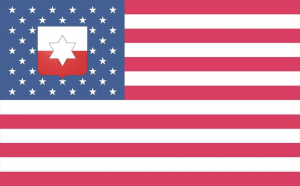
“Share and Live”
Tuvalu 51: A Vision for a Sustainable Floating State
Welcome to Tuvalu 51, an innovative floating state designed as a refuge for those affected by climate change and societal challenges. We aim to create a safe, sustainable community on the sea, leveraging redesigned WWII Phoenix caissons. Tuvalu 51 is more than just a sanctuary; it’s a symbol of hope and resilience, aspiring to become the 51st state of the USA.
Inspired by Texas, our unique constitution is the foundation for a society that values equality and justice. We prioritize a gun-free environment and ensure peace and safety through well-regulated armed forces.
Central to our ethos is mandatory civilian service, fostering community development, and combating online misinformation. We embrace a revolutionary work-sharing model, limiting work hours to enhance quality of life and ensure equal job opportunities.
Tuvalu 51 is not just about living on water; it’s about thriving sustainably. Our commitment to marine habitats underpins our approach to balancing economic activity with environmental conservation.
We are dedicated to redefining global manufacturing and labor practices, promoting part-time work, and ensuring a future that respects the rights of women and children.
Join us in shaping a future built on hope, shared responsibility, and a commitment to a more equitable and sustainable world. Discover Tuvalu 51 – a new chapter in humanity’s journey towards coexistence and harmony with nature.
François Joinneau
Raised as a Catholic, I was a firm believer when I was a child, but after surviving an aggression when I was 12, I became a relentless chimney sweep and an atheist.
Now, I have evolved as an agnostic, and the meaning of sentient life, whether organic or digital, is to collect the most Carbon, Hydrogen, and Oxygen in the Universe.
Carbon Hydrogen and Oxygen will help constitute the needed organic matter to fight against the Universe cooling and crunching, making “Life” win over “Fate.”
Robots and machines run by digital sentient life can remotely collect carbon, hydrogen, and oxygen.
Organic sentient life is more vulnerable than digital sentient life and thus must be sheltered on and under the oceans on every planet where there is enough water.
oceansTo move organic sentient life to other planets, we need spaceships surrounded and protected by artificial oceans, following the egg pattern.
Take care. François Joinneau
